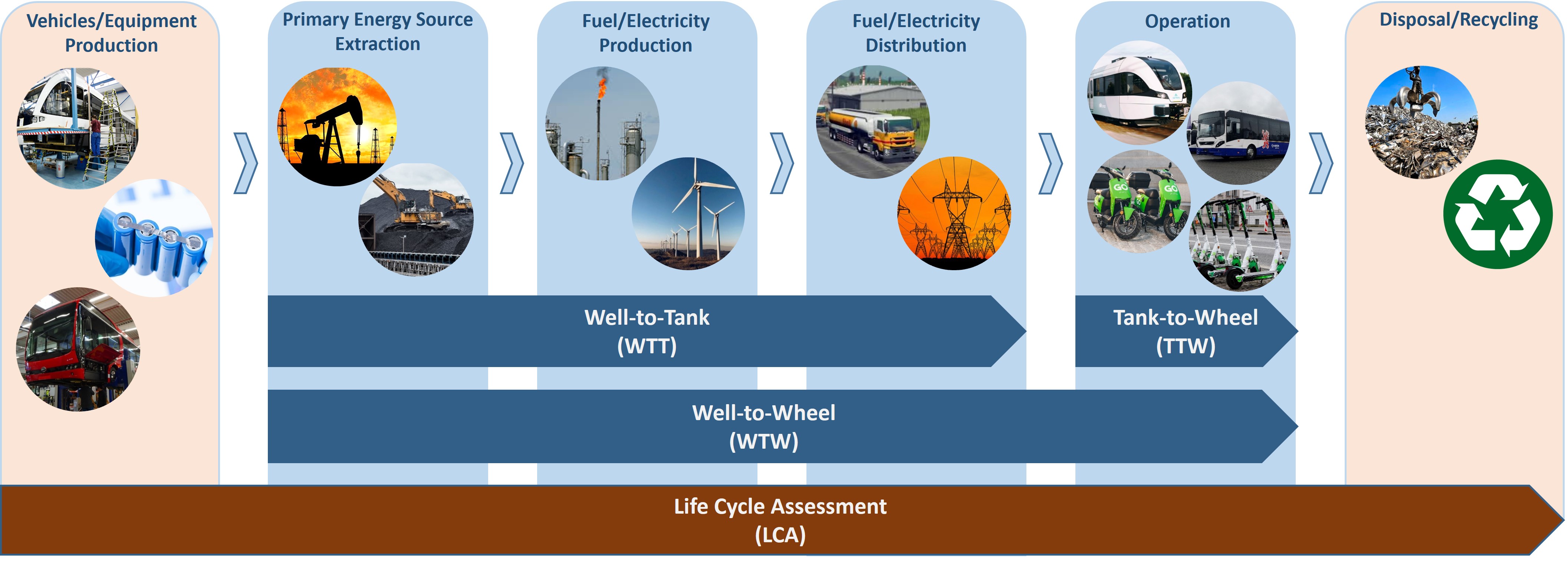Public Transport and Mobility-as-a-Service for Greening Transportation Systems in the Dutch Context
The transport sector accounts for one quarter of the total greenhouse gas (GHG) emissions in the European Union (EU), and requires a 90% reduction of its emissions in order to reach carbon neutrality by 2050. Public transport and emerging digitalized mobility solutions, whether multimodal Mobility-as-a-Service (MaaS) applications or separate services such as car sharing, have a notable potential to reduce both GHG emissions and kilometers travelled by car. However, these are assumptions that are yet to be explored from a sustainability point of view since the environmental, business, and social impacts of such innovations are not fully understood.
As major fleet operators, and in some cases builders of extensive infrastructure systems, public transport operators will require effective management of GHG emissions and established procedures for their transparent reporting. Current practices include mainly voluntary carbon footprint reporting often limited to the well-to-wheel (WTW) scope, i.e., direct emissions from fuel combustion (tank-to-wheel, TTW) and upstream emissions linked to the fuel production (well-to-tank, WTT). Due to the implementation of the Corporate Sustainability Reporting Directive (CSRD) which stems from the European Green Deal, further new reporting obligations and standards will follow for many transport operators from the reporting year 2025 onwards. Reporting under the CSRD will follow the European Sustainability Reporting Standards (ESRS) which define new mandatory disclosures for climate reporting. In particular, in addition to Scope 1 and 2 emissions, the reporting of Scope 3 emissions will become mandatory in accordance with the GHG Protocol. This imposes significant challenges for transport operators in accounting the life cycle emissions which were traditionally omitted and considered as out of influence.
Therefore, it is crucial to adopt a holistic approach in understanding and incorporating all the factors influencing the environmental performance and produced life cycle emissions of a transport system as a whole. These factors reflect the complexity of context-specific transportation system represented by numerous stakeholders, transport modes, behavioural aspects, technology diversity across and within modes, etc.
This project is performed in close cooperation with Arriva Nederland, and runs from 2022 to 2025. The aim of the project is to define a methodology in assessing the environmental impact of a transportation system, and to provide potential solutions for further reduction of the overall emissions. A life cycle perspective will be used in developing methods for calculating and declaring emissions, i.e., encompassing direct emissions (e.g., from combustion of fuel), embedded emissions related to the fuel production, and those related to the equipment production such as batteries for electric vehicles. We will analyse the environmental impact of integrated public transport and shared mobility services in the Netherlands, focusing primarily on the operation of public transport operator Arriva and services covered in the MaaS application Glimble, including car share, bike share, e-scooter share and taxi services.
Accounting life cycle emissions will facilitate a comprehensive analysis of Scope 3 (upstream/downstream) emissions, at the same time leading to improved data quality and information exchange processes among stakeholders within the whole supply chain. It will create a profound basis for the development of a circular economy strategies - a topic that is gaining new importance within the framework of the CSRD and ESRS. Furthermore, valuable information will be available to travellers so that they can make well-founded choices in the field of sustainability and mobility when planning and making a trip.
Sustainability program of Arriva Nederland (Onze CO2-reductie)


